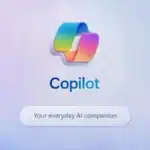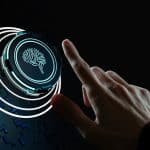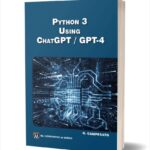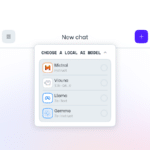Microsoft is working on a RAM slider for Edge to help control memory usage

Microsoft Edge is based on the Chromium engine these days, and while the browser tends to follow in the footsteps of Chrome, there are occasions when it leads the way. The latest example of this can be seen in the most recent Canary build of Edge where Microsoft has been spotted testing a RAM slider.
Aimed primarily at gamers, the feature will give users control over how much memory the browser is able to use. Two questions immediately spring to mind -- when will this ship, and how long before Chrome follows suit?
Microsoft is arrogantly giving Copilot greater prominence than your notifications in Windows 11

Microsoft is ramming Copilot further down the throats of Windows 11 users in the latest push of its AI-driven assistant.
The company is so eager for people to take notice of Copilot, that the company has elevated the tool so it is more prominent than important notifications. The change is seen in Windows 11 build 26100 as well as Windows 11 version 23H2 where the gesture previously used to access notifications now calls up Copilot instead.
Companies turn to communities to bolster in-house test automation

Under increasing pressure to release new digital services, apps, and features faster, many companies are resorting to automating their entire quality assurance process. While this approach is by no means new, not many companies can claim that their test automation keeps pace with the rate of development of new features. This is because software testing by nature is reactive. Despite development methodologies like test-driven development (TDD), testing still hinges on the readiness of products and components. This has made the life of automation engineers quite difficult. Often pressed for time, components are often only ready towards the end of the sprint.
In-house engineers have become so overwhelmed that organizations are turning to a community-based model to access qualified test automation engineers. Fully qualified professionals can quickly supplement the work of in-house teams to ensure that releases stay on track. It is a way of ensuring quality is assured at speed that the market demands.
Five ways AI can boost your data backups

In the event of a data emergency -- say, a cyber attack or a natural disaster shutting down a data center -- no organization wants to worry about whether they have secure, up-to-date backups, and whether they can be easily recovered.
But without the help of artificial intelligence (AI) or machine learning (ML), fewer organizations are able to protect their backups against attacks, meet the necessary backup workload, or meet the defined service level agreements (SLAs) for the availability of information, applications, and infrastructures (or do so quickly and recover efficiently).
Through green IT, businesses can do their part

Whether at an individual level or enterprise scale, we now know that it’s important for us all to make an effort when it comes to protecting our planet. When we think of effective sustainability measures, we likely think of practices like recycling, reducing plastic consumption, and minimizing food waste.
One potentially overlooked area for sustainability improvements is the world of technology -- which, as we know, continues to expand and advance at a breathtaking rate. In the United States alone, data centers are responsible for 0.3 percent of our planet’s carbon dioxide emissions, a bigger carbon footprint than some countries. While there do exist programs for responsible recycling of technology materials like old laptops and dead batteries, there are still far too many of these items taking up valuable space in landfills.
Get 'Python 3 Using ChatGPT/GPT-4' (worth $54.99) for FREE

Ever wanted to learn Python using ChatGPT/GPT-4? The process is easier than you might think.
This book is intended primarily for people who want to learn both Python 3 and how to use ChatGPT with Python. It covers an introduction to fundamental aspects of Python programming, including various data types, number formatting, Unicode handling, and text manipulation techniques, loops, conditional logic, and reserved words in Python.
Skills shortage drives automation and outsourcing

A new report from IT solutions provider Auvik reveals a lack of skilled workers as the top challenge for IT teams.
Based on a study of over 2,000 internal IT and MSP professionals, the report shows an increased focus on adopting automation, including AI and ML tools, to address the needs of overworked and understaffed IT teams.
Get 'Kubernetes Secrets Handbook' (worth $35.99) for FREE

Securing Secrets in containerized apps poses a significant challenge for Kubernetes IT professionals.
Kubernetes Secrets Handbook tackles the critical task of safeguarding sensitive data, addressing the limitations of Kubernetes encryption, and establishing a robust Secrets management system for heightened security for Kubernetes. Starting with the fundamental Kubernetes architecture principles and how they apply to the design of Secrets management, this book delves into advanced Kubernetes concepts such as hands-on security, compliance, risk mitigation, disaster recovery, and backup strategies.
Cloud Software Group and Microsoft announce $1.65 billion cloud and AI partnership

Cloud Software Group and Microsoft have announced an eight-year strategic partnership agreement, with Cloud Software Group committing $1.65 billion to Microsoft’s cloud and generative AI capabilities. This collaboration aims to strengthen the Citrix virtual application and desktop platform and develop new cloud and AI solutions with an integrated product roadmap.
Under this partnership, Citrix, a business unit of Cloud Software Group, will be the preferred Microsoft Global Azure Partner solution for Enterprise Desktop as a Service when collaborating with joint Azure customers. The companies will jointly support customer success by offering tailored solutions, expert guidance, and support to accelerate customers’ cloud journeys. Citrix will also leverage Microsoft Azure as its preferred cloud solution, integrating the benefits of the Citrix platform with Azure Virtual Desktop and Windows 365.
Industry turns to zero trust

A new study of industrial enterprises shows 72 percent have started adopting zero trust principles, with 38 percent of organizations establishing, implementing, and optimizing zero trust control measures.
The study from Xage and Takepoint Research surveyed over 250 cybersecurity senior leaders across critical infrastructure organizations, energy, utilities, transportation, oil and gas and manufacturing to gauge the current state of zero trust implementation.
Google may lock AI search results behind a paywall

Aa a company synonymous with search and a love of AI, it is little surprise that Google is combining the two. But people familiar with the company’s plans suggest that AI-powered search features could have a price tag attached to them.
The move would be a first for Google as the company has never charged for any search product, and it could be a sign that ads are simply not bringing in enough money. It is something that has been described as a big change to its business model, but it is not clear if this is a sign of further search-related charges to come.
Google finally starts rolling out Find My Device for Android to rival Find My from Apple

Almost a year after it was first announced, Google is finally rolling out its offline Find My Device service for Android devices.
All but identical to Apple's Find My network, Google's offering not only makes it possible to track the location of Android handsets, but also includes support for third-party AirTag-style trackers. While the rollout appears to have started, for now it is only a beta; a full launch is imminent, however.
Opera One web browser enhances AI capabilities: Adds local Large Language Models (LLMs) in developer stream

Opera has announced a huge AI update to its Opera One web browser in the developer stream. The company is introducing experimental support for 150 local Large Language Models (LLMs) across approximately 50 different model families. This innovative feature allows users to easily access and manage local AI models directly from the browser, a first in the industry.
The supported local LLMs include notable names such as Llama from Meta, Vicuna, Gemma from Google, Mixtral from Mistral AI, among others. The inclusion of local LLMs means that users can now leverage generative AI capabilities without the need to send data to external servers. This ensures that user data remains on the device, enhancing privacy and security.
Outrageous: Microsoft to charge $61 for Windows 10 updates -- consider switching to Linux!

Hold on to your hats, folks, because Microsoft is at it again. In a move that’s sure to ruffle some feathers, the tech giant has announced* that starting October 2024, just one year before Windows 10 reaches its end of support, the company will charge a whopping $61 per device for the first year of Extended Security Updates (ESU). And get this – the price will double every consecutive year for a maximum of three years! If you’re late to the party and join in Year Two, you’ll have to cough up the cash for Year One as well since these updates are cumulative. Talk about a slap in the face!
Now, let’s be clear: these Extended Security Updates are meant to be a temporary bridge for organizations that need more time to transition to Windows 11. They’re not intended to be a long-term solution. But let’s face it, for many businesses and individuals, upgrading to Windows 11 isn’t as simple as flipping a switch. There are compatibility issues, hardware requirements, and not to mention the hassle of migrating entire systems. So, this move by Microsoft feels like it's holding users hostage -- pay up or risk being left vulnerable to security threats.
Security vendor consolidation or best of breed? Why you must do both

Trends in cybersecurity (like many areas of technology and life) tend to make pendulum-like swings over time. One such shifting debate is around security tool philosophy: is it best to use an array of best-in-class tools or consolidate to a single, “do it all” security platform?
I argue that it is essential to planfully and strategically implement a hybrid approach. By combining some best-of-class tools with integrated platforms, you can eliminate the chaos of countless single tools and embrace the advanced benefits of today’s platforms, while still having some high-value, niche solutions to provide the necessary layers of protection for the security armor. It’s important to avoid dependence on a single vendor to also avoid implementing that vendor’s weaknesses/blind spots across the enterprise; yet these solutions offer many advantages.
Most Commented Stories
© 1998-2025 BetaNews, Inc. All Rights Reserved. About Us - Privacy Policy - Cookie Policy - Sitemap.




